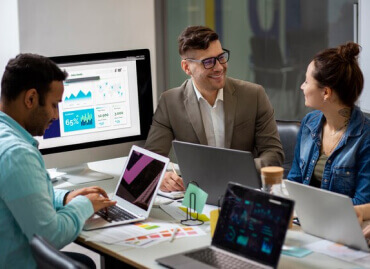Contact Info
-
2040 Reilly Run, Grove City, OH 43123

The advent of artificial intelligence (AI) is rapidly transforming the workplace, ushering in a new era of efficiency, creativity, and collaboration. As AI technologies continue to advance, they are reshaping how work is done, creating new opportunities, and posing unique challenges for businesses and employees alike. This article explores how AI is influencing the future of work, the benefits and challenges it presents, and what we can expect as we move towards a more AI-driven workplace.
AI is fundamentally changing the way businesses operate. From automating routine tasks to enhancing decision-making, AI is enabling companies to streamline processes, reduce costs, and improve productivity. This shift is not just about replacing human labor with machines; it’s about augmenting human capabilities and creating a more dynamic and adaptable workforce.
The future of work will undoubtedly be shaped by AI, but it is up to businesses and policymakers to
navigate this transformation responsibly. By embracing AI's potential while addressing its
challenges, we can create a workplace that is not only more efficient but also more inclusive,
innovative, and human-centered.
As AI continues to evolve, the key to success will be adaptability. Businesses must remain
flexible, continuously exploring new ways to integrate AI into their operations while fostering a
culture of learning and development. Employees, on the other hand, must be willing to embrace
change, acquire new skills, and collaborate with AI to unlock their full potential.


AI will change 100% of jobs over the next decade. The reality is, AI is going to change every single job, but AI will also create new jobs.
Ginni Rometty, former CEO of IBM